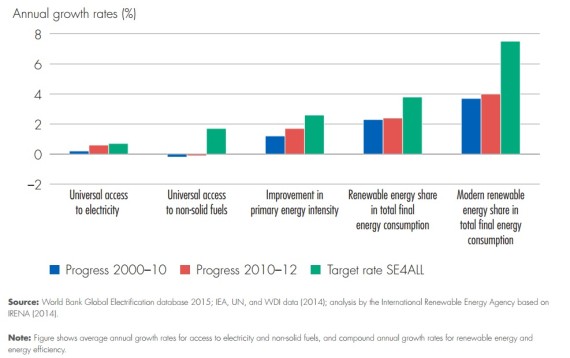‘SIGNIFICANT PROGRESS’ TOWARDS SUSTAINABLE ENERGY, BUT NOT ENOUGH
“Significant process” has been made towards achieving widespread energy access, increased energy efficiency, and a greater development of renewable energy, according to the International Energy Agency and the World Bank.
The new report published by the International Energy Agency (IEA) and World Bank comes as part of the greater Sustainable Energy for All (SE4ALL) initiative, launched by the UN Secretary-General Ban Ki-moon in September of 2011. The report, Global Tracking Framework 2015, is the second edition of the report, and provides an update on how the world has been moving towards the three SE4ALL objectives:
- ensure universal access to modern energy services
- double the global rate of improvement in energy efficiency
- double the share of renewable energy in the global energy mix
The report, therefore, provides a report on how fast the world is moving towards these three objectives, specifically with regards to the latest tracking data, from the two year tracking period 2010-12.
According to the report, as of 2012, 85% of the global population had access to electricity, which translates into 220 million people acquiring access to electricity since 2010. However, providing access to clean cooking facilities has been relatively slow, with more than 40% of the world’s population still relying on fossil fuels for cooking. Primary energy intensity (the global proxy for energy efficiency), dropped by 1.7% a year over the two year tracking period, which is nearly a full percentage point behind the SE4ALL objective. And, in addition, the share of renewable energy grew from 17.8% to 18.1%, but while this is an increase, the rate of increase needs to be nearly double to achieve the SE4ALL goal.
Released at the Sustainable Energy for All (SE4All) Forum held in New York this week, the report calls on global policy makers to work toward tripling energy investments, from the current level of $400 billion to $1.25 trillion. Commitments already made under the SE4All initiative, by the European Union, Germany and the United States, are set to help developing countries provide energy access to their underserved citizens, but will fall short of universal access.
How do we convert commitments to kilowatt hours for real people? That is the trillion-dollar question,” said the UN Secretary-General’s Special Representative and SE4All chief, Kandeh Yumkella, at the Forum. “This is not about charity. This is about markets and investments. We see this as a trillion-dollar opportunity, not a trillion-dollar challenge.”
POSTED BY: cleantechnica.com / Joshua S. Hill




